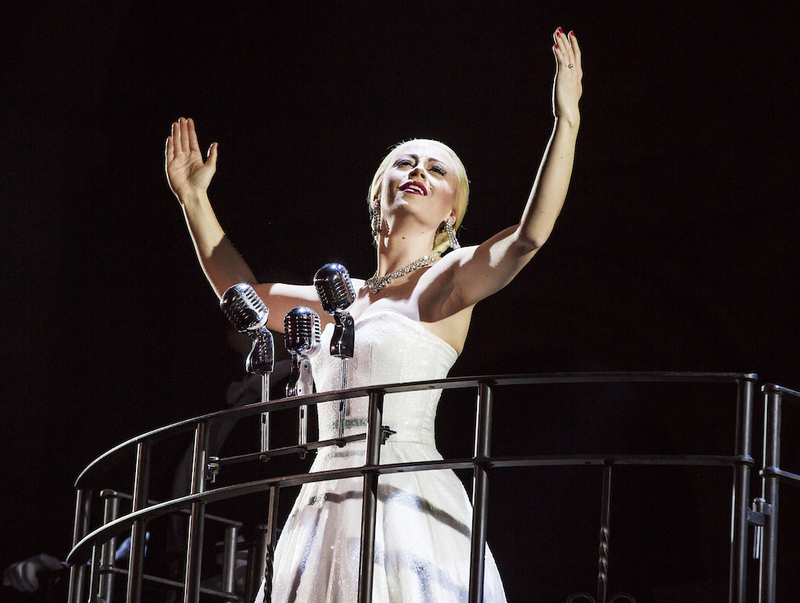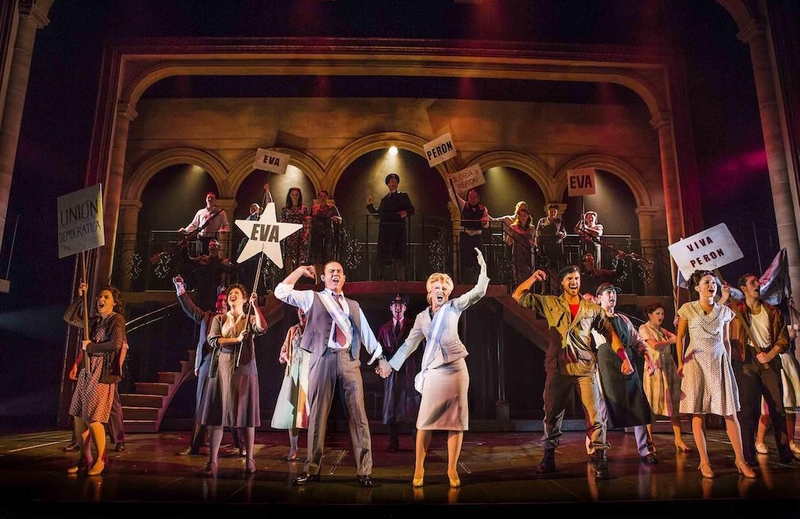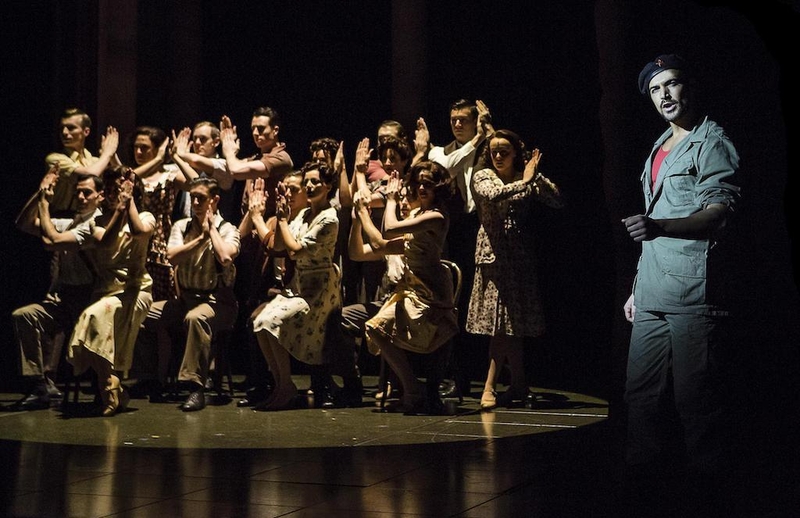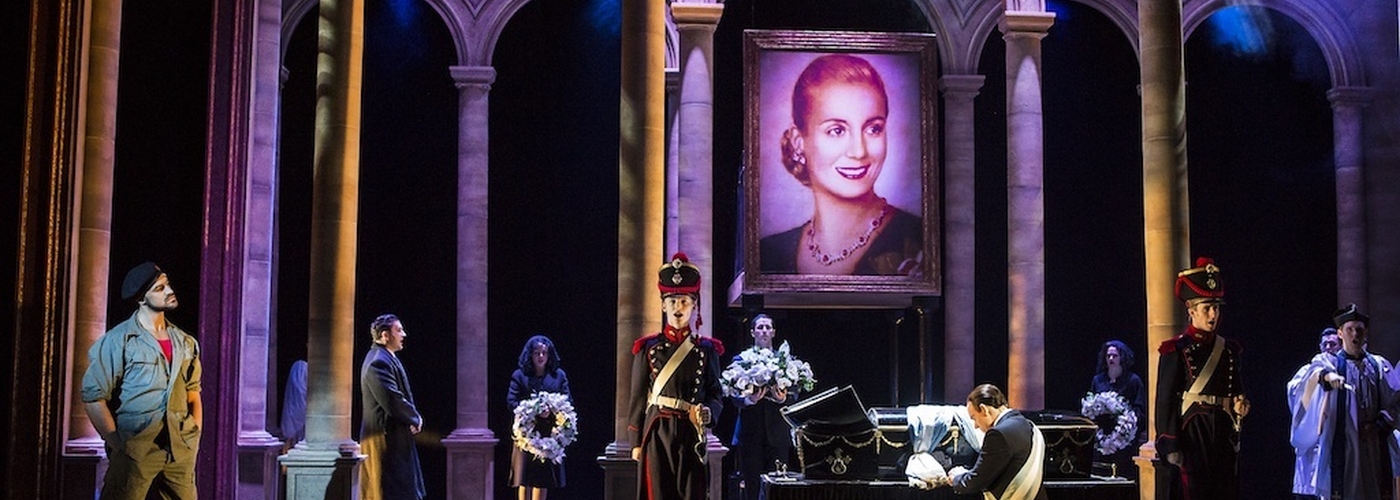Vicky Smith finds this show a mix of good and bad - much like the First Lady of Argentina herself
***
You’d think the fact Evita is based on a true story, especially one so complex and fascinating, should be an advantage. For me, this was its greatest downfall. There is simply too much to convey in the timespan of a theatre production, and a lot of meaning was lost as a consequence.
The story of Eva Perón, née Duarte, has all the ingredients of a Brothers Grimm fairytale: a classic rags to riches narrative, with sinister undertones and an ending that’s not entirely happy ever after.
Born out of wedlock, into extreme poverty, Eva moved to Buenos Aires at fifteen to pursue a career as an actress. Despite her lack of education or connections, she managed to gain a foothold via modelling and B-grade melodramas but it was radio which gained her financial stability, and she eventually came to co-own a radio station - something which later proved useful on drumming up support for her future husband Juan Perón, who became President of Argentina.

Eva’s humble upbringing and focus on helping the poor made her popular with the masses, who ultimately dubbed her ‘spiritual leader of the nation,’ but she failed to win round the upper classes and military. Nevertheless, she was insanely popular and many wished her to be Vice President; something she wanted herself, yet had to forgo due to poor health.
It’s a (chilling) testament to Eva’s determination that - on one of her last public appearances - she wore a frame of plaster and wire beneath her coat, allowing her to stand, and took five doses of painkillers. She died at 33, of cervical cancer, and it’s believed she’d had a lobotomy as a last ditch attempt to relieve her pain.
Then there’s the matter of her embalmed corpse, which was kidnapped by political opponents and disappeared for sixteen years - drawing a lot of unhealthy speculation, including necrophilia. It was eventually returned to Argentina, where it sits in a tomb ‘so secure it could withstand a nuclear attack.’ Now, ‘Evita’ is often revered as a Saint and even has a currency and city in her honour.

Needless to say, this is too much to convey in under three hours, and crucial elements were left out: for example, her poverty-stricken childhood, which is arguably one of the most significant things about her politically. We also missed a lot of context and I’m unsure why the play both started and ended with her funeral - likewise, whether she was ultimately good or bad. To be fair, a research on Google indicates the jury is still out: while she gave to the poor and championed women’s suffrage, some compare ‘Peronism’ to Fascism and say it effectively bankrupted the country. Reports of corruption were rife, including within Eva’s charitable foundation, and it was suggested she had a secret bank account in Switzerland.
Saint or sinner? I still don’t have the foggiest.
In the play, Eva is portrayed as ruthless and grabbing, rather than simply ambitious, and I found it hard to emphasise (unlike the woman blubbing away behind me). Eva’s husband Juan, meanwhile, appears full of doubt and reliant on her for motivation and advice. She even goes round Europe on his behalf, while he sits with his cronies - all talk, no action. How historically accurate this is I’m unsure, but it doesn’t say much for their party.
Then there’s the confusion of ‘Che’ as narrator, a character apparently based on Guevara but not actually him; it’s disputed whether the revolutionary even met Perón in real life. Despite being working class himself, in the play he is clearly against her, declaring the furore a circus. After all, Eva is an actress - what does she know about politics?

Eva similarly meets resistance from military, who are grossly sexist: according to them she’s a whore, a bitch, a bit on the side and (more importantly) a woman. A lower class one at that. In their eyes, she has no political clout and never will. Considering this is based on attitudes at the time, you have to admire what real-life Eva battled against.
The orchestra sometimes drowned out lyrics, the dialogue was all sung - never spoken - and the lack of clarification persisted. Yet, as with Eva herself, there were positives too: the talented orchestra, the choreography, the superb visual effects and, of course, iconic hits like Don’t Cry for me Argentina; sung with aplomb by Madalena Alberto.
Like Juan Perón following Eva’s death, the intention was clearly there - and the highlights were spectacular - but, for me, this musical couldn’t deliver on its promises.
Images: Pamela Raith
Evita is at the Palace Theatre Manchester until Saturday 9 December














